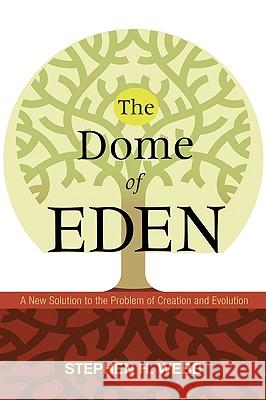The Dome of Eden: A New Solution to the Problem of Creation and Evolution » książka
The Dome of Eden: A New Solution to the Problem of Creation and Evolution
ISBN-13: 9781606087411 / Angielski / Miękka / 2010 / 376 str.
The Dome of Eden: A New Solution to the Problem of Creation and Evolution
ISBN-13: 9781606087411 / Angielski / Miękka / 2010 / 376 str.
(netto: 187,20 VAT: 5%)
Najniższa cena z 30 dni: 183,80 zł
ok. 13-18 dni roboczych
Dostawa przed świętami

Darmowa dostawa!
Description: What would biology look like if it took the problem of natural evil seriously? This book argues that biological descriptions of evolution are inherently moral, just as the biblical story of creation has biological implications. A complete account of evolution will therefore require theological input. The Dome of Eden does not try to harmonize evolution and creation. Harmonizers typically begin with Darwinism and then try to add just enough religion to make evolution more palatable, or they begin with Genesis and pry open the creation account just wide enough to let in a little bit of evolution. By contrast, Stephen Webb provides a theory of how evolution and theology fit together, and he argues that this kind of theory is required by the internal demands of both theology and biology. The Dome of Eden also develops a theological account of evolution that is distinct from the intelligent design movement. Webb shows how intelligent design properly discerns the inescapable dimension of purpose in nature but, like Darwinism itself, fails to make sense of the problem of natural evil. Finally, this book draws on the work of Karl Barth to advance a new reading of the Genesis narrative and the theology of Duns Scotus to provide the necessary metaphysical foundation for evolutionary thought. Endorsements: ""The ongoing, critical re-evaluation of Darwinian evolution by theologians has revived an interest in the problem of natural evil. Stephen Webb must be counted as one of the most imaginative and adventurous contributors to this literature, someone who at once reasserts the significance of Satan in nature and the person of Christ as the archetype for the human condition. In Webb one encounters a close reader of the Bible who manages to render a providential view of divine creation compatible with recent convergent approaches to evolution that suggest, on scientific grounds, a more purposeful view of humanity than Darwin would ever have allowed."" --Steve Fuller Professor of Sociology University of Warwick ""Classic Webb--a take-no-prisoners assault on complacent assumptions, sharp-taloned critiques, a rip-roaring theological voice, Formula One urgency, and smart, rat-tat-tat prose."" --Russell R. Reno Professor of Theological Ethics Creighton University About the Contributor(s): Stephen H. Webb is Professor of Religion and Philosophy at Wabash College, Crawfordsville, Indiana. He is the author of nine previous books, including Dylan Redeemed (2006).
Description:What would biology look like if it took the problem of natural evil seriously? This book argues that biological descriptions of evolution are inherently moral, just as the biblical story of creation has biological implications. A complete account of evolution will therefore require theological input. The Dome of Eden does not try to harmonize evolution and creation. Harmonizers typically begin with Darwinism and then try to add just enough religion to make evolution more palatable, or they begin with Genesis and pry open the creation account just wide enough to let in a little bit of evolution. By contrast, Stephen Webb provides a theory of how evolution and theology fit together, and he argues that this kind of theory is required by the internal demands of both theology and biology. The Dome of Eden also develops a theological account of evolution that is distinct from the intelligent design movement. Webb shows how intelligent design properly discerns the inescapable dimension of purpose in nature but, like Darwinism itself, fails to make sense of the problem of natural evil. Finally, this book draws on the work of Karl Barth to advance a new reading of the Genesis narrative and the theology of Duns Scotus to provide the necessary metaphysical foundation for evolutionary thought.Endorsements:""The ongoing, critical re-evaluation of Darwinian evolution by theologians has revived an interest in the problem of natural evil. Stephen Webb must be counted as one of the most imaginative and adventurous contributors to this literature, someone who at once reasserts the significance of Satan in nature and the person of Christ as the archetype for the human condition. In Webb one encounters a close reader of the Bible who manages to render a providential view of divine creation compatible with recent convergent approaches to evolution that suggest, on scientific grounds, a more purposeful view of humanity than Darwin would ever have allowed."" --Steve FullerProfessor of SociologyUniversity of Warwick""Classic Webb--a take-no-prisoners assault on complacent assumptions, sharp-taloned critiques, a rip-roaring theological voice, Formula One urgency, and smart, rat-tat-tat prose.""--Russell R. RenoProfessor of Theological EthicsCreighton UniversityAbout the Contributor(s):Stephen H. Webb is Professor of Religion and Philosophy at Wabash College, Crawfordsville, Indiana. He is the author of nine previous books, including Dylan Redeemed (2006).











